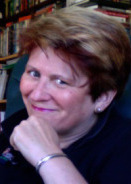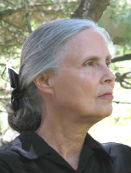Interview on Writing a Memoir - Part 2
This is Part 2 of our conversation about writing a memoir with Kendra Bonnett and Matilda Butler fromWomensmemoirs.com. Click here to return to Part 1 of the conversation.
In this portion of our conversation, we asked Kendra and Matilda about the role of journaling in memoir writing.
A Conversation with Kendra Bonnett and Matilda Butler: Journaling and Writing a Memoir

Kendra: For many people, memoir comes out of their journaling, but that isn’t 100 percent. Matilda and I, for example, are not journalers -- not for lack of respect or interest in the process, I just think I am not disciplined enough to do it. I’m too busy doing other things during the day. I don’t know, I don’t get to it. I respect people who do this, and I think they have a wonderful wealth of material to draw upon.
This is why we brought Amber Starfire into our website. Because she is a dedicated journaler and has been doing it since she was a child. She gave me an example the other day when she said she actually sat with her journal by her mother’s bedside while her mother was dying. And she recorded all of her feelings and emotions and everything that she was going through and thinking about. She said that she doubted it would have been possible to as effectively gone back and tried to recreate that experience and set of emotions. So, by having that tool to work from, she could write about that particular episode in her life with so much more detail and clarity of emotion and convey that experience more effectively to her readers. That’s probably true. It doesn’t mean that you couldn’t get your point across and get your emotion across, but I certainly think there is something to be said for this.

Matilda: I think that Kendra’s raising the correct distinction there, which is that journaling is an ongoing daily process, and people who journal tend to have one time in the day that they always write. Sometimes it’s when they first get up, and sometimes it’s late in the evening before they go to bed. And they have a journal, they write the date, and then they maybe only write a few sentences; maybe if something bigger has happened, they will write several pages. But it is a process almost of recording a life as it’s going by; whereas, memoir is always a sense of reflection.
And so if you happen to have journals, they are wonderful sources of information for a memoir. They are not the memoir itself. I have known people who have taken pieces from their journal and actually included the little phrases or the paragraph, the entry at the time, in order to show what they were thinking about something that happened in an earlier time. So, one is a wonderful discipline for writing—the journaling—because it does let you value the words you put down. And people who journal aren’t self-critical; they are not saying, “Oh, that word isn’t the right word.” Because you are trying to capture your feelings, and the emotions going on, and some of the facts of what’s happening. But a memoir is always a sense of going back and reflecting on what happened across a longer time period.
Read more advice on writing memoirs in Part 3 of our conversation with Kendra Bonnett and Matilda Butler.
Writing a Memoir - Next Steps
Go on to Part 3 of this conversation about writing memoirs.
Read tips on how to write a journal.
Go to our memoir writing competition page.
See a list of all articles about writing a memoir.
<< BACK from Writing a Memoir to Creative Writing Now Home